Did you know that turmeric, the golden spice found in nearly every kitchen, has been studied in over 3,000 scientific publications for its potential health benefits? For centuries, it has been used in Ayurvedic and traditional remedies to support digestion, immunity, and skin vitality. In modern wellness circles, turmeric tea has gained a reputation as a natural way to detoxify the body, improve kidney function, enhance skin health, and address a surprising number of common conditions.
But is this simple yellow drink really as powerful as people claim? Can something as humble as turmeric tea help cleanse your kidneys, brighten your complexion, and support multiple areas of health at once? In this guide, you’ll discover the science, the traditional wisdom, and a practical recipe you can try at home. By the end, you’ll know how to make turmeric tea part of your daily routine—and why it might be one of the most underrated health drinks you can brew.
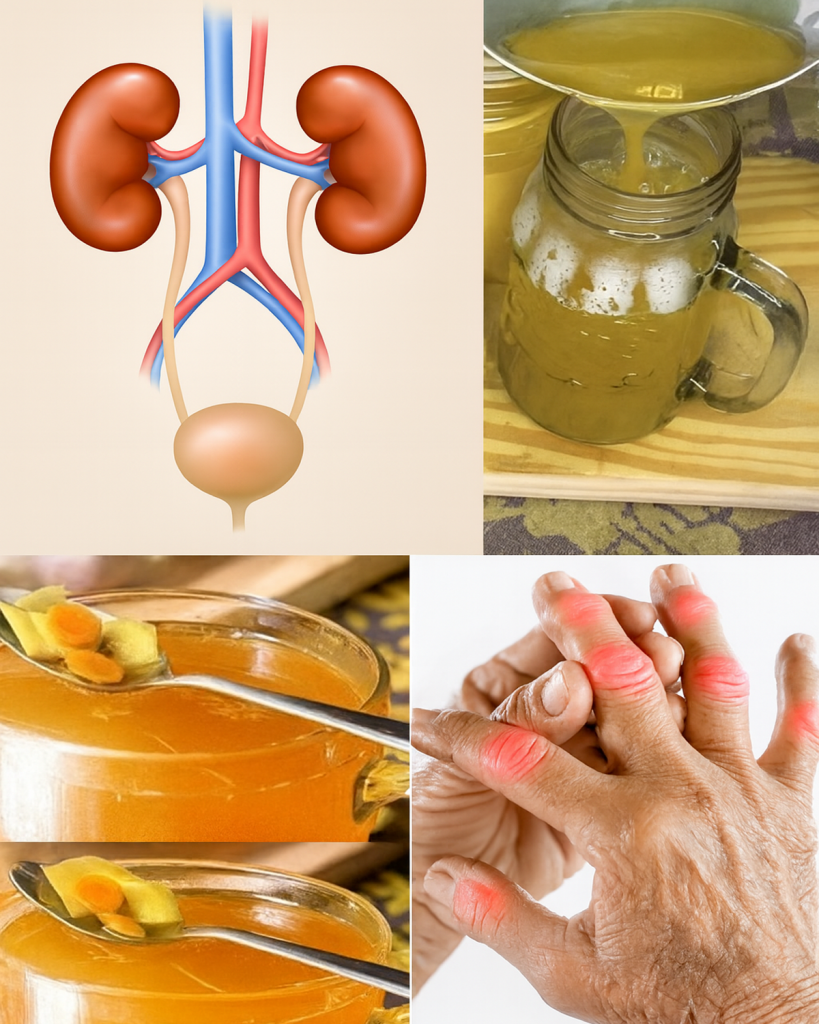
What Makes Turmeric Tea So Special
The key compound: Curcumin
Turmeric’s active ingredient, curcumin, is widely studied for its antioxidant and anti-inflammatory properties. Research suggests that it may help reduce oxidative stress, support healthy kidney function, and slow down cellular aging.
Traditional wisdom
In traditional medicine, turmeric tea was often used to “purify the blood,” soothe digestive issues, and refresh the skin. Communities across India, China, and Southeast Asia considered it a tonic for long life.
A gentle daily ritual
Unlike supplements, turmeric tea is easy to prepare, comforting to sip, and can be adapted with other healing ingredients like ginger, cinnamon, or honey for extra benefits.

How Turmeric Tea May Support Kidneys, Skin, and Beyond
| Health Area | Potential Benefit | How It Works |
|---|---|---|
| Kidney health | May assist detox pathways | Antioxidants help reduce oxidative stress |
| Skin glow | Supports clear, radiant skin | Anti-inflammatory and circulation-boosting |
| Digestion | Calms bloating and acidity | Stimulates bile production |
| Joint comfort | Eases stiffness | Anti-inflammatory support |
| Heart health | Supports circulation | May reduce cholesterol and blood pressure |
| Immunity | Strengthens defense | Antioxidants + antimicrobial effects |
| Weight balance | May aid metabolism | Improves fat breakdown |
| Brain health | Supports clarity and mood | Protects neurons from oxidative stress |
| Liver cleansing | Enhances detox enzymes | Supports liver function |
| Anti-aging | Slows skin damage | Fights free radicals |
These benefits don’t make turmeric tea a cure-all, but they highlight why so many people adopt it as part of their wellness lifestyle.
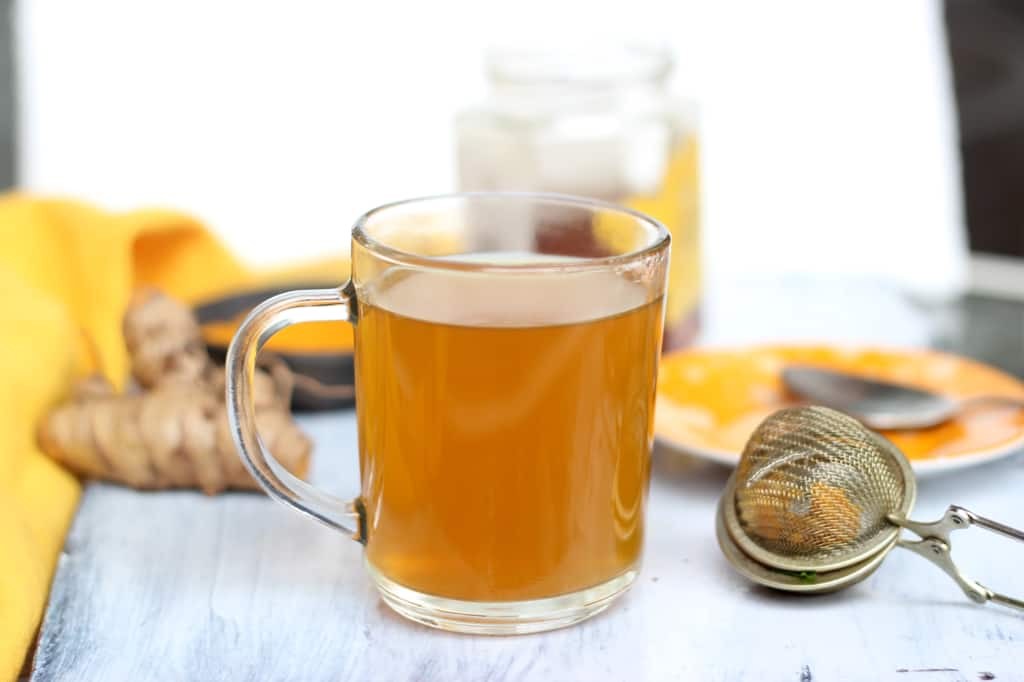
The Secret Recipe: How To Make Turmeric Tea at Home
Ingredients
- 1 cup water
- ½ teaspoon ground turmeric (or 1 inch fresh turmeric root, grated)
- A pinch of black pepper (enhances absorption of curcumin by up to 2,000%)
- Optional: ½ teaspoon grated ginger, 1 cinnamon stick, or a teaspoon of honey
Instructions
- Boil the water in a small pot.
- Add turmeric (and ginger/cinnamon if using). Let simmer for 5–7 minutes.
- Remove from heat, strain into a cup.
- Add black pepper and honey (if desired).
- Sip warm, preferably on an empty stomach in the morning or before bed.
Tips for best results
- Use fresh turmeric root when available—it gives a stronger flavor and more active compounds.
- Always pair with black pepper for maximum curcumin absorption.
- If the taste feels strong, mix with warm almond milk or coconut milk for a golden latte twist.
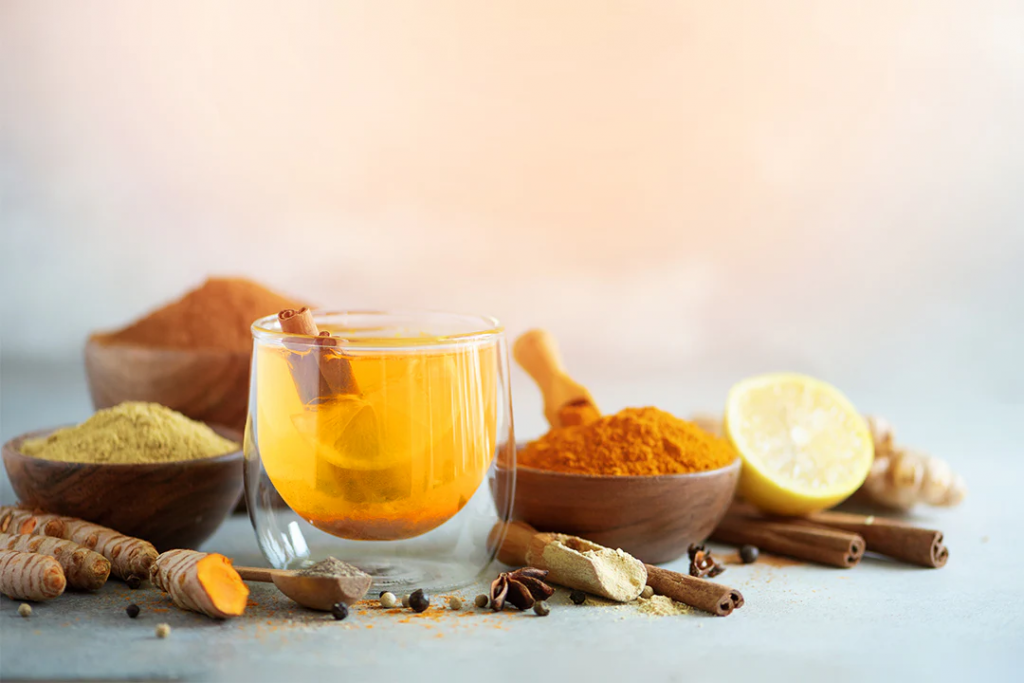
Real-Life Experiences and Case Studies
- Case Study 1: A teacher with skin dullness
Sarah, 42, began drinking turmeric tea three times a week. After two months, she noticed her complexion looked brighter, and her breakouts were less frequent. While she still used moisturizer and sunscreen, the tea gave her a “healthy glow” she hadn’t seen in years. - Case Study 2: Office worker with mild kidney strain
James, 35, often felt fatigued due to poor hydration and late-night snacks. By incorporating turmeric tea daily, alongside better water intake, he reported feeling “cleaner” and less bloated. His doctor encouraged him to keep the routine, though he emphasized it was not a substitute for medical treatment. - Case Study 3: Retiree with joint stiffness
Linda, 67, used turmeric tea with ginger. Over six weeks, she described her morning stiffness as “less stubborn,” which allowed her to enjoy walks more comfortably. She still followed her prescribed medication but found the tea a soothing complement.
These experiences show that turmeric tea may enhance well-being when combined with a balanced lifestyle.
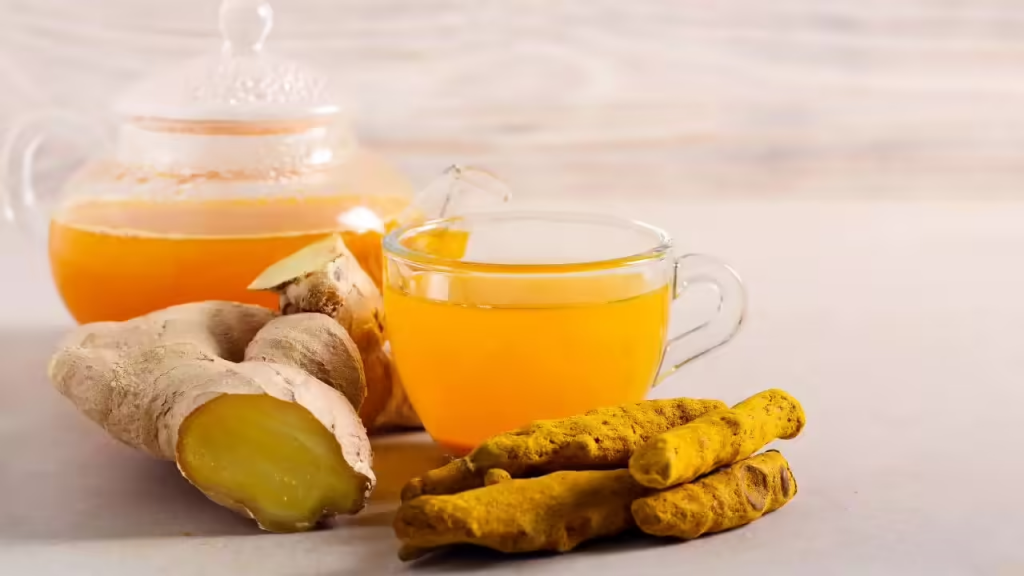
Precautions and Safety Tips
- Check for allergies: Some people may develop stomach upset if they consume too much turmeric.
- Kidney stones: Turmeric is high in oxalates, which could increase kidney stone risk in susceptible individuals.
- Medication interactions: If you take blood thinners, diabetes medication, or blood pressure drugs, consult your doctor before using turmeric regularly.
- Pregnancy and breastfeeding: Safe in small culinary amounts, but concentrated intake should be discussed with a healthcare provider.
How To Include Turmeric Tea in Your Routine
- Morning boost: Drink warm turmeric tea to kickstart your metabolism.
- Evening wind-down: Sip a soothing cup before bed with milk and honey.
- Seasonal cleanse: Use it as part of a detox week alongside fresh fruits, vegetables, and plenty of water.
- Skin ritual: Pair turmeric tea with a balanced skincare routine for inside-out radiance.
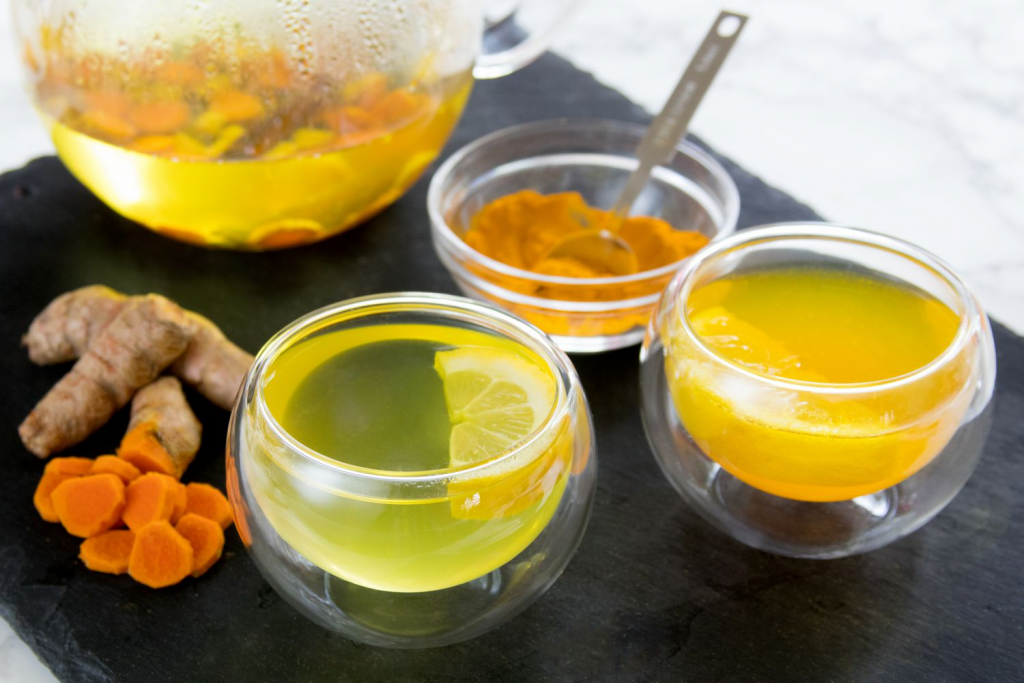
Conclusion
Does turmeric tea really cleanse kidneys and beautify skin? Many people report improved energy, clearer skin, and a lighter feeling when it becomes a regular habit.
Is it safe to drink daily? Generally yes, in moderate amounts, but always test your tolerance and consult your doctor if you have medical conditions.
How soon will I see results? Some notice improvements in digestion and skin glow within 2–3 weeks, while deeper benefits may take longer.
Final note: This content is for informational purposes only and does not replace professional medical advice. If you have persistent symptoms or health concerns, consult a qualified healthcare provider.




